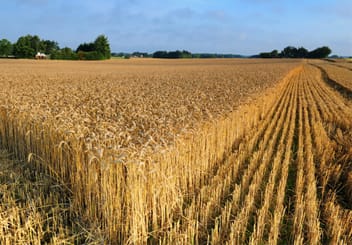Context
The Torah obligates a landowner to a series of five mandatory matanot la’evyonim, “gifts to the poor.” Four of these obligations are recorded in Parshat Kedoshim:
- Leket: Stalks of grain that fall to the ground during the harvest must be left for collection by the poor.
- Peah: A portion (preferably a corner) of the field must be left unharvested for harvest by the poor.
- Olelot: Small, unformed clusters of grapes must be left on the vine for harvest by the poor.
- Peret: Solitary grapes that fall to the ground during the grape harvest must be left for collection by the poor. One additional gift is not enumerated in Parshat Kedoshim, but is recorded elsewhere in the text:
- Shikcha: “Forgotten” bushels that remain in the field after the ingathering has been completed must be left for collection by the poor.
These obligations do not apply in our day due to the rabbinic concern, which developed over time, that these gifts would be taken by Gentiles and not left for the poor.
These obligations do not apply in our day due to the rabbinic concern, which developed over time, that these gifts would be taken by Gentiles and not left for the poor.
Questions
Why does the Torah obligate a landowner to these specific “gifts” to the poor? In what ways, if any, do matanot la’evyonim differ from the general halachic requirement of tzedaka, charity, that remains incumbent upon the landowner, as well?
Given that these laws are no longer observed in our day, what, if any, lessons can be learned from their study?
This new feature presents questions on the weekly parsha for your consideration, excerpted from Rabbi Shmuel Goldin’s new book, Unlocking the Torah Text on Vayikra.
The words of this author reflect his/her own opinions and do not necessarily represent the official position of the Orthodox Union.
